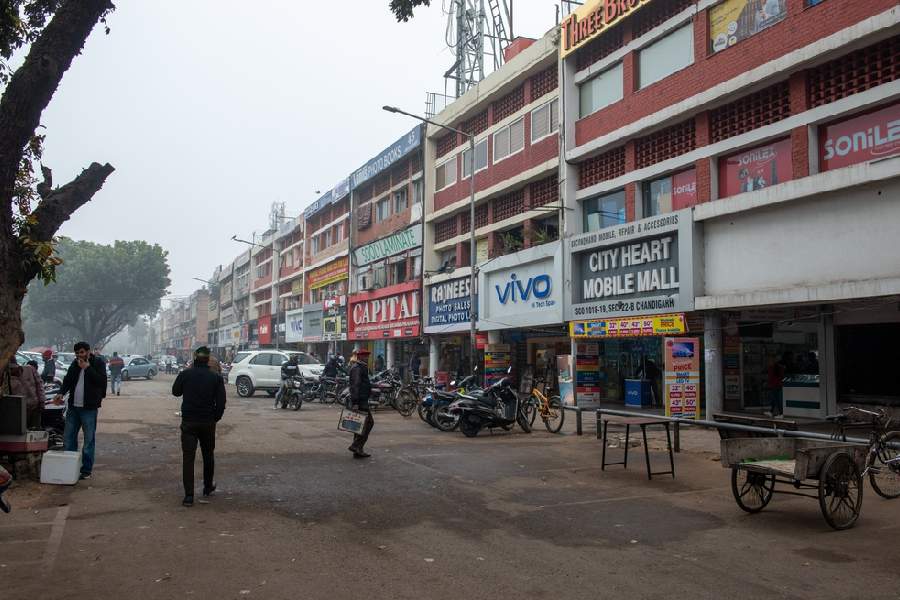Congress leaders on Friday accused the Centre of attempting to erode federal principles after a routine Parliament bulletin listed a Constitution Amendment Bill relating to Chandigarh, triggering an unexpected political confrontation across Punjab and Haryana.
Congress leader Jairam Ramesh said the inclusion of the Constitution (131st Amendment) Bill 2025 in the bulletin reflected what he called the government’s “first announce, second think” approach.
“Yet another example of the Modi Government’s FAST approach to governance — First Announce, Second Think (sic),” he posted on X, adding that Congress and several Punjab leaders had opposed the proposal.
The bulletin showed that the Centre has proposed to include the Union territory of Chandigarh under the ambit of Article 240 of the Constitution, empowering the President to make regulations for the UT and legislate directly.
The Union home ministry on Sunday issued a clarification stating it had “no intention” of introducing the bill in the Winter Session, but the announcement failed to check the escalating row.
The ministry said the proposal sought to “simplify the central government’s law-making process for the Union territory of Chandigarh” and did not alter its administrative structure or the traditional arrangements with Punjab and Haryana.
Congress general secretary Randeep Singh Surjewala said the proposal amounted to a “debilitating assault on federalism”. In a statement on X, he argued that any attempt to amend Article 240 would undermine the rights of Punjab and Haryana over Chandigarh, which functions as the joint capital under the Punjab Reorganisation Act, 1966.
He further accused the Centre of attempting to provoke tension between the two neighbouring states and pursuing “an unbridled desire to take absolute control of Chandigarh, ignoring the sentiments or spirit of the people”.
The Aam Aadmi Party national convener Arvind Kejriwal called it a “direct attack” on Punjab’s identity and said the move reflected “a mentality of undermining the federal structure and depriving Punjabis of their rights”.
The Punjab government is run by the Aam Aadmi Party. While, Haryana, which is under the BJP,
Senior Shiromani Akali Dal leader Harsimrat Kaur Badal echoed the criticism, saying Punjab would “completely lose its right over Chandigarh” under such a change. She called the listing “a robbery of the rights of Punjab and a violation of the principles of the federal structure”.
The SAD called an emergency core committee meeting to chart its response, while Punjab Congress’s Partap Singh Bajwa warned that the development could pave the way for “governor’s rule in the state”.
Punjab finance minister Harpal Singh Cheema accused the Centre of making a fresh attempt to “finish” Punjab, arguing that earlier efforts to assert control over institutions such as the Bhakra Beas Management Board and Panjab University formed part of the same pattern. “All these attempts were thwarted by the brave people of Punjab,” he said.
Congress MLA Pargat Singh urged the Punjab government to oppose what he termed an “anti-Punjab move” in the Assembly and called for an all-party delegation to meet the president.
Punjab MP Vikramjit Singh hinted Punjab’s stake in Chandigarh and said, “Unilateral bid to alter Chandigarh’s status will undermine long-standing understandings. Chandigarh stands on 59 Punjabi villages; over 1,000 sq. km of its controlled periphery lies in Punjab; and its UT status under the 1966 Reorganisation Act was meant to be temporary. The 1970 Indira Gandhi decision committed that “the capital project area of Chandigarh… as a whole go to Punjab,” and the 1985 Rajiv–Longowal Accord promised transfer by 26 Jan 1986.”
The BJP’s Punjab unit has adopted a more conciliatory tone. State party chief Sunil Jakhar said he would meet Union home minister Amit Shah to convey Punjab’s concerns. “To facilitate the administrative requirements of Chandigarh, the sentiments of Punjab cannot be ignored,” he said. “Chandigarh is not just a geographical piece. Sentiments of Punjab are attached to it.”
Despite the home ministry’s attempt to distance itself from the proposal, the issue has already ignited one of the most intense federal debates in the region in recent years, with parties on both sides preparing for a prolonged confrontation.











